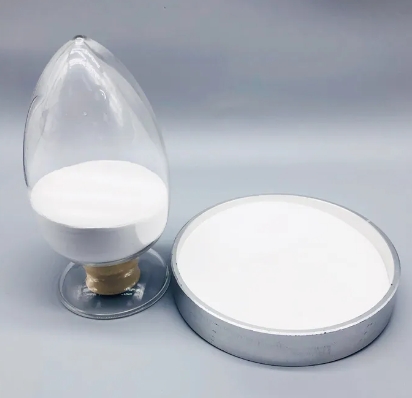What Are You Looking For?
Controlling foam in the alumina production process: Utilizing specialized defoaming agents to enhance efficiency
Jul 11, 2025During the process of converting bauxite into alumina, the formation of foams is a long-term and costly issue. Uncontrolled foams can disrupt the key operations in the Bayer process, resulting in reduced output, low operational efficiency, quality problems, and potential safety hazards. Effective defoaming is not only beneficial but also crucial for maintaining the smooth, efficient and safe operation of the alumina refining process.

The foam challenge in aluminum oxide processing
In the Bayer process, the phenomenon of foaming occurs throughout the entire process. The main reasons for this are as follows:
1. High alkalinity: The strong corrosiveness of the liquid used in this process (i.e., the strong corrosiveness of the sodium hydroxide solution).
2. Fine particle suspended matter: There are fine particles such as red mud, tricalcium aluminate (water aluminate) precipitates, and precursors of scale formation.
3. Organic pollutants: Natural organic compounds from bauxite (such as humic acid, oxalate), which have the function of surfactants.
4. Stirring and aeration: Intense stirring, pumping, and the laminar flow of the liquid will bring in air.
5. High temperature conditions: Especially during digestion and calcination stages.
This kind of foam will bring about many problems:
1. Reduced sedimentation and cleaning efficiency: The foam will hinder the sedimentation process of red clay in the cleaning and sedimentation tanks, and prevent efficient cleaning operations.
2. Decreased equipment capacity: The foam will occupy a large amount of space in storage tanks, digesters, sedimentation tanks and evaporators, thereby limiting the processing capacity.
3. Unstable operation: Overflow of containers, pump cavitation and inaccurate liquid level measurement.
4. Product contamination: Impurities may be carried along with the product flow.
5. Increased scaling: The foam will aggravate the scaling problem on container walls and heat exchangers.
6. Safety risks: Slips, leaks and difficulty in monitoring containers.
The function of the special alumina defoamer
Traditional defoamers often fail to function under the extreme conditions of the Bayer process. The effective defoamers used in the production of alumina must possess specific characteristics:
1. Excellent alkali resistance: They must remain stable and active in high-concentration, high-temperature caustic solutions without decomposing or forming ineffective saponins.
2. High-temperature stability: Maintaining performance at digestion temperature and higher temperatures is crucial.
3. Particle tolerance: They must operate normally in a high-concentration environment of fine solid particles and must not fail as a result.
4. Organic compatibility: They need to inhibit foaming caused by organic pollutants while not being damaged by these organic substances.
5. Rapid defoaming and long-lasting inhibition: They can quickly eliminate formed foam and prevent its reformation in dynamic process flows for a long time.
6. Minimal impact on process chemistry: They should not interfere with the rate of precipitation, crystal growth, or the quality of subsequent products.
7. "Low volatility & High flash point": Crucial for safety, especially in high-temperature environments.
The benefits brought about by the implementation of effective defoaming agents
Applying the appropriate defoaming agent technology can bring significant benefits to the alumina refining plant:
1. Increase in output: Making full use of the container capacity can enhance production efficiency.
2. Improvement in process efficiency: Faster sedimentation speed, increased cleaning efficiency, reduced risk of scaling, and smoother operation.
3. Enhancement in product quality: Reduces the risk of impurities entering the alumina product.
4. Reduction in operating costs: Lowered energy consumption (e.g., overcoming the resistance of foam), reduced maintenance costs (reduced scaling, reduced overflow), and decreased loss of chemical substances.
5. Improvement in safety: Reduces the risks of foam overflow and unstable operations.
6. Environmental compliance: Better control of the emission of process materials.
"Work together to achieve new achievements in high-quality alumina production"
As a manufacturer specializing in the production of high-performance defoaming agents, we are well aware of the unique complexity of the Bayer process. There is no one-size-fits-all solution. Success depends on the following factors:
1. In-depth understanding of the process: Understand the location and cause of foam generation under the factory configuration and alumina raw material conditions specified by you.
2. Customized formula: Develop optimized defoamers for specific chemical components, temperature curves and foam issues at different stages (dissolution, clarification, precipitation, evaporation).
3. Precise application: Determine the optimal addition points and injection methods to achieve the best results and minimize product usage.
4. Strong technical support: Provide professional guidance on troubleshooting, performance monitoring and continuous improvement.